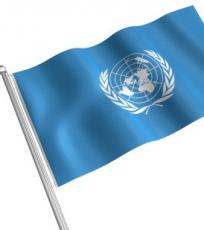UN concerned by NZ "lack of proper funding for specialist sexual violence services"
Fri 29 May 2015
New Zealand's sixth periodic review under the United Nations Convention against Torture and Other Cruel, Inhuman and Degrading Treatment has ...

New Zealand's sixth periodic review under the United Nations Convention against Torture and Other Cruel, Inhuman and Degrading Treatment has again highlighted violence against women and children as issues of concern.
The concluding observations of the UN Committee on Torture (CAT) on New Zealand's sixth periodic report noted "positive aspects" regarding New Zealand's work to reduce violence against women and children. These include: the introduction of Police Safety Orders; the enactment of Victims of Crime Reform; the enactment of the Vulnerable Children Act; the introduction of the Victims' Orders Against Violent Offenders Bill; the release of the Children's Action Plan for Vulnerable Children; and the establishment of the Ministerial Group on Family Violence and Sexual Violence.
However, the persistence of violence against women and disproportionate occurrence for Māori women continued to be a principal concern for the Committee, as noted in the fifth periodic report in May 2009. The report states "The Committee is particularly concerned at information received that while 90 per cent of the cases of sexual violence remain unreported, statistics also show that the number of applications for safety orders have decreased since 2010, even though the number of family violence investigations have increased over the same period. Moreover, the Committee is concerned at the lack of proper funding for specialist sexual violence services, including by specialists, which reflect the diversity in the States Parties' communities." (p.3)
The Committee makes seven recommendations to reduce violence against women, urging New Zealand to "redouble its efforts." Specifically, the report recommends:
"a) Taking necessary measures to encourage and facilitate the lodging of complaints by victims and to address effectively the barriers that may prevent women from reporting acts of violence against them, including by ensuring that education professionals, health-care providers and social workers are fully familiar with relevant legal provisions, trained to recognize the signs of violence against women and are capable of complying with their obligation to report cases;
(b) Ensuring the effective enforcement of the existing legal framework by promptly, effectively and impartially investigating all reports of violence and prosecuting and punishing perpetrators in accordance with the gravity of their acts;
(c) Strengthening public awareness-raising activities to combat violence against women and gender stereotypes;
(d) Increasing its efforts to combat violence against indigenous women;
(e) Guaranteeing in practice that all victims benefit from protection and have access to adequately funded medical and legal aid, psychosocial counselling and social support schemes;
(f) Removing the cultural and financial barriers to accessing protection orders by removing or reducing the costs associated;
(g) Developing and implementing a comprehensive national sexual violence prevention strategy by further intensifying community-based approaches to combat violence against women, with the involvement of all relevant stakeholders."
Other issues of concern to the Committe include: insufficient resourcing of the Children’s Commissioner and the Independent Police Conduct Authority; trafficking in persons (forced labour and sex trafficking); overcrowding and insufficient mental health care in prisons; overrepresentation of Māori in prisons; excessive use of solitary confinement and seclusion in mental health facilities; gaps in the protection of juveniles in the criminal justice system; inappropriate or excessive use of tasers; the treatment of asylum-seekers and undocumented migrants, including immigration detention; and redress for victims of torture.
In May 2014, the Government announced a funding boost of $10.4 million over two years to stabilise sexual violence services, which preceded the outcome of a Social Services Select Committee inquiry into the funding of specialist sexual violence services. The majority of the funding boost was allocated to support existing specialist sexual violence services, harmful sexual behaviour treatment services, services for male survivors of sexual abuse, and medical/forensic services. An RFP was also announced in January 2015 to allocate $1.5 million to fill gaps in the coverage of acute crisis sexual violence services supporting survivors of sexual violence during and immediately following a crisis.
Chief Human Rights Commissioner David Rutherford said the UN review of New Zealand’s performance gives the government the opportunity to reflect and commit to changes that will improve the wellbeing of people. He said the Commission looks forward to the August report of the Ministerial Group on Family Violence and Sexual Violence.
Adopted by General Assembly resolution 39/46 on 10 December 1984, the Convention requires states to prevent torture and degrading treatment within their borders. New Zealand ratified the Convention on 10 December 1989. New Zealand's seventh periodic report is due on 15 May 2019. For more information on New Zealand's periodic reviews under the Convention, visit the Human Rights Commission website.
Further resources:
The New Zealand Police recently released an evaluation of the effectiveness of Police Safety Orders (PSOs) during the introduction period 1 July 2010 to 31 December 2012.
Media
Image: iStock


